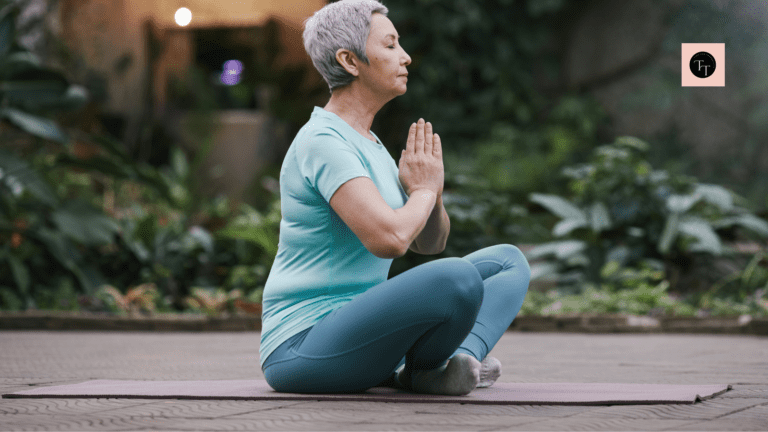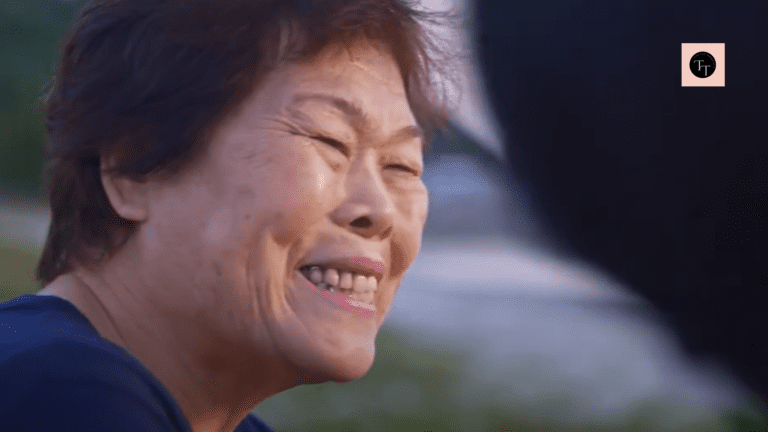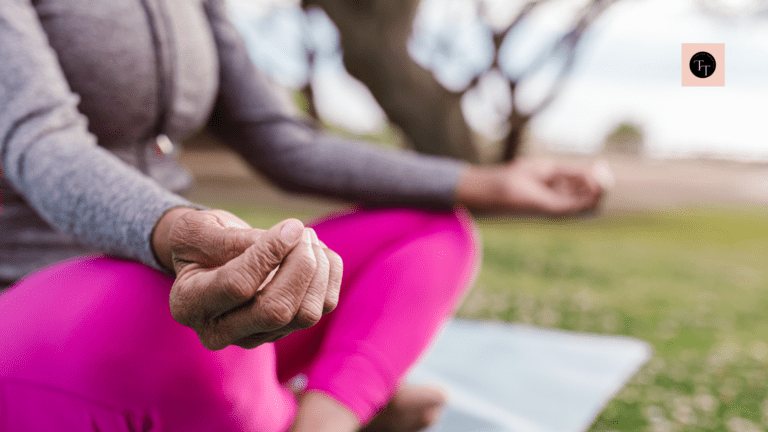Mindfulness for Seniors: Discover Peace, Purpose, and Well-Being!
In recent years, stressed-out millennials have incorporated mindfulness and meditation into their busy lives. But what about Mindfulness for Seniors? Can retirees, seniors, and the elderly also benefit from practicing mindfulness?
Importance of Mindfulness for Seniors
The short answer is yes. Mindfulness for seniors is as important, if not more because their lives are also full of stress and anxiety. In addition, they have to struggle with emotions of loneliness, a seeming lack of purpose, and uncertainty about the future.
“Mindfulness is a way of befriending ourselves and our experience.” – Jon Kabat-Zinn
Mindfulness for seniors is about being fully present in the moment, noticing your thoughts and feelings without judging them. It’s not only about trying to clear your mind or forcing yourself to think positively.
Instead, it’s about gently bringing your attention to what’s happening here and now. You can find peace, tranquility, joy, and happiness when you anchor yourself to the present moment.
With mindfulness, you don’t need to change who you are or try to achieve perfection. It’s about showing up for yourself, as you are, and offering kindness and patience to whatever arises. This is a comforting way to slow down, reconnect with yourself, and age with grace.
Benefits of Mindfulness for Senior Women
Mindfulness offers many wonderful benefits, especially for senior women. It helps you handle stress, feel more connected to others, and maintain mental clarity. By practicing mindfulness, you can enjoy greater emotional balance and overall well-being.
Reduces Stress and Anxiety
Mindfulness helps calm the mind by focusing on the present moment. It lowers stress hormones and allows you to manage worries about the future. Studies show that mindfulness can significantly reduce anxiety, helping you relax and feel more in control.
Improves Health and Wellness
Mindfulness is great for your overall health too. Research has shown that mindfulness helps reduce blood pressure, improve sleep, and lower chronic pain. Regular mindfulness practice can improve your physical well-being. The health benefits of mindfulness are great as it makes it easier to navigate health challenges.
Better Emotional Health and Relationships
Practicing mindfulness allows you to notice your emotions without being overwhelmed. It helps you feel more balanced and present, which enhances your emotional self-awareness. Mindfulness helps you to connect better with loved ones and engage in more meaningful and balanced conversations.
Enhanced Mental Clarity and Memory
Mindfulness exercises keep your mind sharp as you age. Research suggests that regular mindfulness practice improves focus and memory, and even helps delay cognitive decline. It’s a simple way to support your mental clarity while promoting long-term brain health.
Brings Purpose to Life
Mindfulness brings a deep sense of purpose to life for seniors, who may have little to look forward to. By encouraging self-compassion and appreciating the present moment, mindfulness practice shifts your focus from what’s missing to what’s fulfilling right now.
Strengthens Resilience
Mindfulness teaches you how to observe emotions without being overwhelmed. It helps you overcome feelings of loneliness or weakness by strengthening your resilience and increases your ability to cope with life’s challenges.
Gateway to Spirituality
For many, mindfulness serves as a gateway to deeper spiritual exploration. It may motivate you to embark on a spiritual awakening journey. Whether through meditation, journaling, or quiet reflection, mindfulness encourages you to explore inner peace and cultivate a richer spiritual life.
15 Mindfulness Techniques for Senior Women
The practice of mindfulness for seniors is a powerful tool for women seeking balance and peace in their daily lives.
Here are 15 simple yet effective mindfulness techniques, organized by difficulty level, to help you start your journey and integrate mindfulness into your everyday routine.
Easy
- Mindful Breathing
Sit comfortably, close your eyes, and focus on your breath. Notice the sensation of air entering and leaving your body. If your mind wanders, gently return to the breath. Practice for 5-10 minutes to start your day calmly. - Gratitude Reflection
Take a few moments each day to reflect on three things you’re grateful for. Focus on how they make you feel, bringing awareness to your emotions. The practice of gratitude reflection helps shift your attention to the positive. - Mindful Listening
Whether it’s the sound of birds, soft music, or a conversation, practice focusing on the sounds around you without judgment or distraction. Let the sounds come and go, helping you stay present in the moment. - Body Scan Meditation
Lie down or sit comfortably. Mentally scan your body from head to toe, noticing any tension or sensations. Release tension as you go, which helps with relaxation and improving body awareness. - Savoring a Meal
Choose one meal a day to eat mindfully. Bring awareness to the aroma, taste, and texture of the food as you eat slowly, and enjoy each bite. Reflect and be grateful for the meal.
Moderate Difficulty
- Mindful Walking
While walking, pay attention to each step. Notice how your feet connect with the ground, the rhythm of your movements, and your surroundings. Walking in nature can enhance this practice by connecting you to your environment. - Journaling
Spend a few minutes each day writing down your thoughts or feelings. Focus on how you feel in the moment without judgment. This helps clear the mind and brings emotional awareness to the surface. - Mindful Stretching
Incorporate light stretching into your routine. Focus on each movement, noticing how your body feels with each stretch. This can be especially effective in the morning to help you connect with your body. - Breath Counting Meditation
Sit quietly and count each breath in and out, up to 10, then repeat. If your mind wanders, start again at one. This is a simple technique to enhance focus and calm your mind. - Engaging with Nature
Spend time in nature, paying attention to the sights, sounds, and smells around you. Focus on the details—how the wind feels on your skin or the patterns of the leaves. This can help you feel grounded and connected.
Demanding
- Loving-Kindness Meditation
Sit quietly and focus on sending love and kindness to yourself, then extend it to others. Start with phrases like “May I be happy, may I be healthy” and move outward to friends, family, strangers, and animals. Loving-Kindness Meditation (Metta) deepens compassion. - Mindful Yoga
Incorporate mindful movement through yoga. Focus on the sensations and alignment of your body as you move through each pose. Use your breath to guide the movements and maintain awareness of your body. - Progressive Muscle Relaxation
Start by tensing and relaxing different muscle groups, working from your feet to your head. Focus on the contrast between tension and relaxation. This technique reduces stress and brings physical awareness. - Mindful Creativity
Engage in mindful creative activities such as painting, knitting, or drawing. Focus on the process rather than the outcome. This can be a meditative and relaxing way to express yourself. - Mindful Meditation (30 minutes)
Set aside 30 minutes for solitude and silence. Focus solely on your breath or a specific mantra. Whenever thoughts arise, gently bring your attention back to your point of focus. Mindfulness Meditation (Vipassana) requires more patience but builds mental clarity.
In Conclusion
“Do not dwell in the past, do not dream of the future, concentrate the mind on the present moment.” – The Buddha
Mindfulness offers senior women peace, resilience, and a deeper connection with themselves and the world around them. By incorporating even simple practices into your daily routine, you can cultivate mental clarity, emotional balance, and a renewed sense of purpose.
Whether you’re starting small or embracing more demanding techniques, mindfulness for seniors opens the door to a life rich with meaning and tranquility. Take a step forward on this journey—you deserve it.






